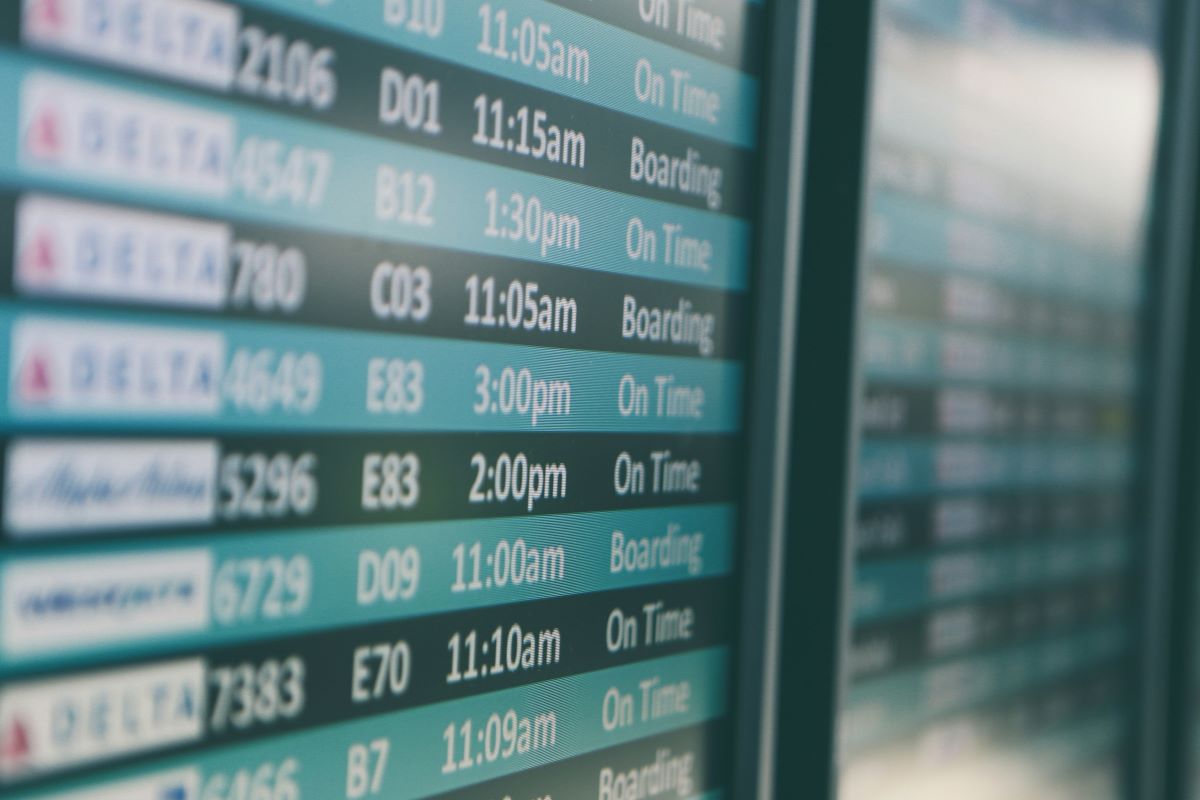Flight delays and cancellations can disrupt even the best-laid travel plans. It’s happened to us a couple of times now, but we were never delayed by more than a few hours, thankfully.
So, whether you’re heading out on a much-anticipated vacation or trying to make it to an important business meeting, discovering that your flight won’t depart as scheduled is frustrating. However, there are practical steps you can take to reduce the stress and handle the situation effectively. By staying informed, knowing your rights, and exploring alternative options, you can navigate through these inconveniences smoothly.
My flight from Santorini was delayed

As I said, we’ve been struck with flight delays a couple of times over the year. But, considering how many flights we’ve taken (well over 200 so far) I think we’ve been pretty lucky. The worst delay we had was coming from Santorini to London Gatwick. The airport was chaotic because lots of other flights were delayed or even canceled and people were getting very angry as the restaurants and Cafes in the airport had started to run out of food.
The departures board was showing an almost 3-hour delay for my flights so I actually tweeted the airline to see if I could get moved to another flight. I was happy to fly into any airport in London, so I was pretty flexible. After around 15 minutes of back and forth with the agent on Twitter I was re-booked onto a codeshare flight to London Heathrow.
Even though it was a different airport I was happy to get a flight that day, as it turned out my original flight was completely canceled.
Anyway, I wanted to let you in on my top tips of what to do when your flight is delayed or canceled …
13 Things You Should Do if Your Flight is Delayed or Canceled
1. Check for official airline announcements
As soon as you hear about a potential flight delay or cancellation, your first step should be to check for official updates from your airline. Most airlines provide real-time information through their websites or mobile apps. Ensure you’ve enabled push notifications or signed up for SMS alerts, so you’re instantly updated on any changes to your flight status.
Airport boards are another great resource for getting live updates. Keep an eye on the departure boards and listen for announcements at the gate. Sometimes, delays may be temporary and can change quickly, so it’s important to stay informed on all available channels. If you need more detailed information, many airlines offer online support through their apps or social media channels. Which can be a faster alternative to waiting in line at customer service desks. That was my experience anyway.
If you’re looking for more in-depth information about why flights get delayed, check it out to learn about the most common causes.
Related Read: A flight delay or cancellation can be one of the worst things to happen when you travel!
2. Understand your passenger rights

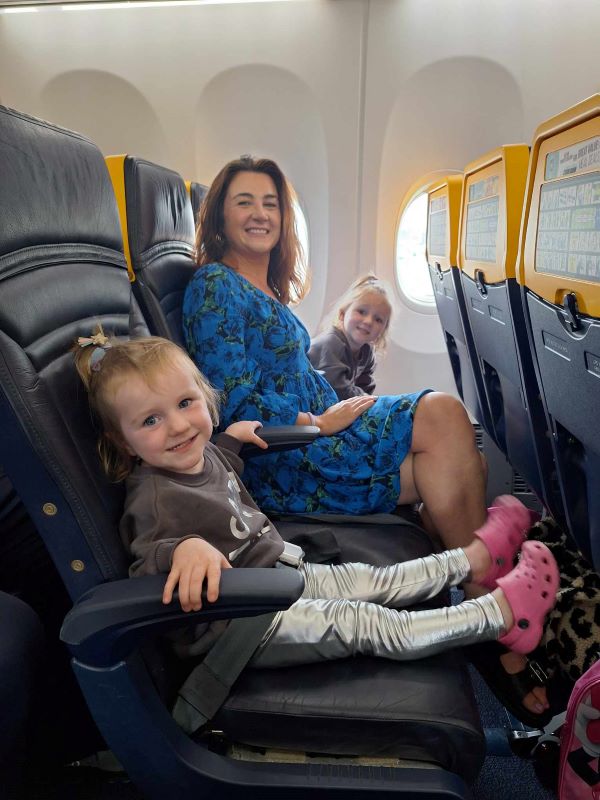
When a flight delay or cancellation occurs, knowing your passenger rights can make a world of difference. Depending on your location and the airline, you may be entitled to compensation, rebooking options, or even hotel accommodations if your delay forces you to stay overnight.
In the European Union, for instance, under EU Regulation 261/2004, passengers are protected when flights are delayed by three or more hours or canceled flights occur. Compensation can range from €250 to €600, depending on the length of the delay and the distance of the flight. However, compensation is usually not granted if the delay is due to extraordinary circumstances like severe weather or air traffic control restrictions.
In the United States, compensation is typically available if you’re bumped from an overbooked flight. But the rules differ for delays. Airlines are not always required to offer monetary compensation, though they may provide meal vouchers, refreshments, or hotel stays. It’s important to check the specific airline’s policy to know what assistance is available.
To navigate these situations more confidently, you can use services like FlightRefunder, which specializes in helping passengers claim compensation for delays and cancellations. Always check your airline’s specific policies and see what assistance you’re entitled to during these disruptions.
3. You may need to rebook or get on an alternative flight
If your flight is canceled or delayed for an extended period, one of the first things you should do is explore rebooking options. Most airlines will allow you to rebook a new flight at no additional cost, especially if the disruption is due to factors beyond your control. You can typically do this through the airline’s app, website, or by speaking directly with a customer service representative.
In some cases, airlines may even offer to rebook you on another flight operated by a partner airline. This can be particularly useful if you’re trying to make a connecting flight or need to get to your destination as soon as possible. If rebooking online isn’t working, don’t hesitate to visit the airline’s help desk at the airport. Being proactive about securing a seat on the next available flight is critical, especially during peak travel times.
You can also look into standby flights. Standby allows you to get on an earlier flight if there are available seats. This is especially helpful if your rebooked flight is significantly later and you want to try to get on an earlier one.
4. Consider booking a hotel if you’re delayed for a long time

When a flight delay stretches into hours—or worse, overnight—your comfort should be a top priority. If you find yourself stuck at the airport for an extended period, consider booking a nearby hotel to get some rest and recharge. Some airlines provide hotel vouchers for passengers whose flights have been canceled or severely delayed. But this is not always guaranteed, especially for delays caused by weather.
If the airline isn’t offering accommodation, it’s up to you to find a place to stay. Apps like Booking.com can help you locate nearby airport hotels, many of which offer shuttle services for convenience. This can be especially valuable if you’re dealing with an unexpected canceled flight that leaves you stranded overnight. Always keep your receipts, as many travel insurance policies or credit card protections will reimburse you for necessary expenses like hotel stays during significant travel disruptions.
If you don’t have access to a hotel, check if the airport offers rest zones or sleep-friendly lounges where you can wait out the delay more comfortably. It’s also wise to check whether your travel credit card or airline loyalty program offers lounge access as a perk, as this can provide some much-needed comfort during long waits.
5. Keep receipts and documentation for reimbursement
Whenever you’re faced with a flight delay or cancellation, it’s crucial to document everything related to your expenses. Keeping receipts for any additional costs. Such as meals, transportation, or accommodation – can help you get reimbursed later, whether through the airline, travel insurance, or your credit card’s travel protection plan.
If your delay results in an overnight stay, keep all documentation related to the hotel, including any shuttle services or additional costs you incur. Even if the airline provides a hotel voucher, make sure to document it, as this might be required when filing a claim.
Airlines may also offer meal vouchers, but if these are not provided, you can claim the cost of your food. Again, make sure to keep your receipts. If you experience a canceled flight or miss a connecting flight due to delays, this documentation is essential for proving your case when applying for compensation or reimbursement.
In addition to physical receipts, take screenshots of any communications with the airline, including emails or text messages that confirm your flight status, delay, or cancellation. Having clear evidence of what happened will streamline the claims process.
6. Check your credit card’s travel protection benefits
Many travelers overlook the built-in travel protection offered by their credit cards. If you experience a flight delay or canceled flight, your credit card may cover the cost of hotels, meals, and even rebooking fees. Premium travel credit cards, such as the Chase Sapphire Reserve or American Express Platinum, often include trip delay or cancellation insurance as part of their benefits package.
To take advantage of these benefits, review the terms of your credit card’s travel insurance policy before your trip. Most policies require that the flight be delayed for a certain number of hours. Usually 6 to 12 hours – before coverage kicks in. Once you know you’re eligible, keep all relevant receipts and documentation. These include hotel bills, food receipts, or proof of alternate transportation. File a claim with your credit card company to get reimbursed for these expenses.
Some credit cards also offer protections for lost or delayed baggage, covering the cost of essential items like clothing and toiletries. Make sure to read through your card’s benefits guide and understand the claim process. Being informed about your card’s perks can save you hundreds of dollars when a travel disruption occurs.
7. Use your travel Insurance (if possible)
If you’ve purchased travel insurance, now is the time to make the most of it. Travel insurance can provide coverage for a range of situations, including flight delays, canceled flights, missed connections, and even trip interruptions. Depending on your policy, you could be reimbursed for meals, hotel stays, transportation, or even the entire cost of your trip if the delay or cancellation causes significant disruptions.
This is how we find the best travel insurance for our trip, it’s a search engine for travel insurance companies so you can find the best travel insurance for your trip. On their site you can compare the plans side by side so you can get the best insurance for your particular trip! As I always say, no trip is the same so your travel insurance shouldn’t be too!
The key to travel insurance is understanding your coverage before you travel. Most travel insurance plans require that the delay be beyond a certain number of hours (usually three to six) before you can make a claim. Make sure to read your policy carefully, so you know what’s covered and what documentation you’ll need to submit. Keep all receipts for additional expenses, such as food, accommodations, or transportation, and make sure to obtain a statement from the airline detailing the reason for the delay or cancellation.
If your luggage is delayed as part of the disruption, many policies will also cover the cost of purchasing essential items, like clothes and toiletries. To file a claim, contact your travel insurance provider asap, either via their app or customer service line. Then, follow the necessary steps to get reimbursed for your out-of-pocket expenses.
8. Check the status of your connecting flight
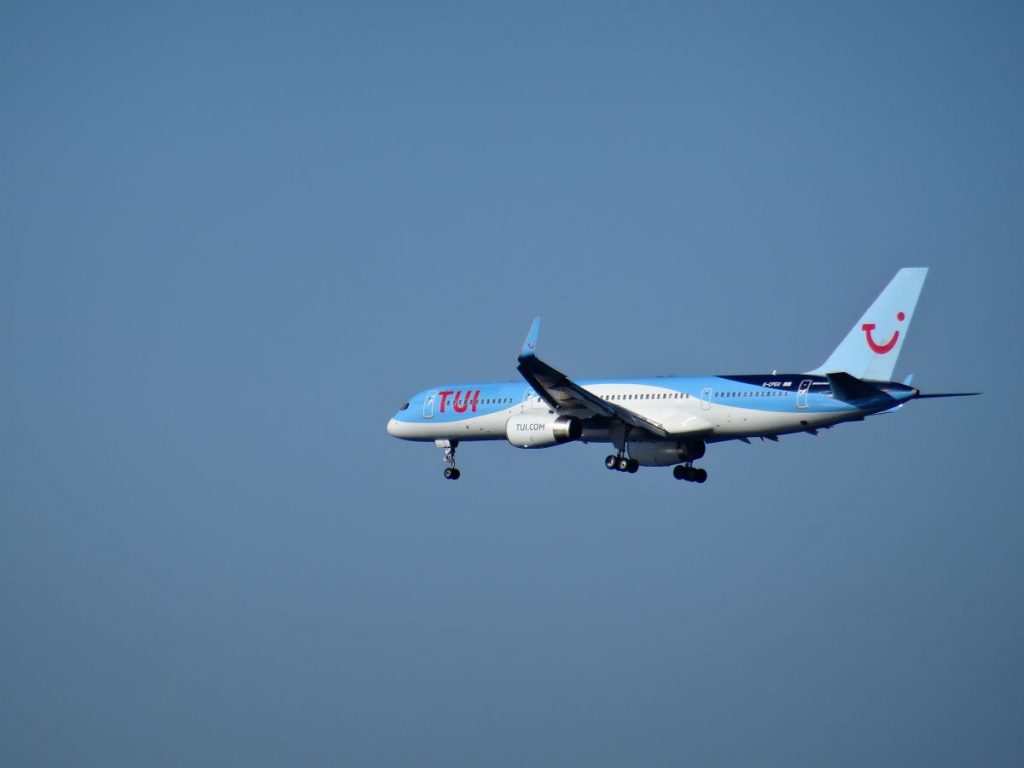
If you have a connecting flight, a delay on your first leg can lead to missed connections and further complications. To avoid this, stay proactive by continually checking the status of your connecting flight. Airlines will sometimes hold connecting flights for delayed passengers. But this isn’t always guaranteed, especially if the delay is significant or the connection is tight.
Make sure to monitor your connecting flight using the airline’s app or a flight-tracking tool like FlightAware. If your first flight is delayed, contact the airline as soon as possible to see if they can rebook you on a later connection. In some cases, the airline may automatically rebook you, but it’s always better to stay informed and take action early to secure a new seat if needed.
If it looks like you’ll miss your connection, head to the airline’s customer service desk or use their hotline for help. Being proactive about rebooking can prevent you from getting stranded at your layover airport.
9. Contact the airline directly for updates
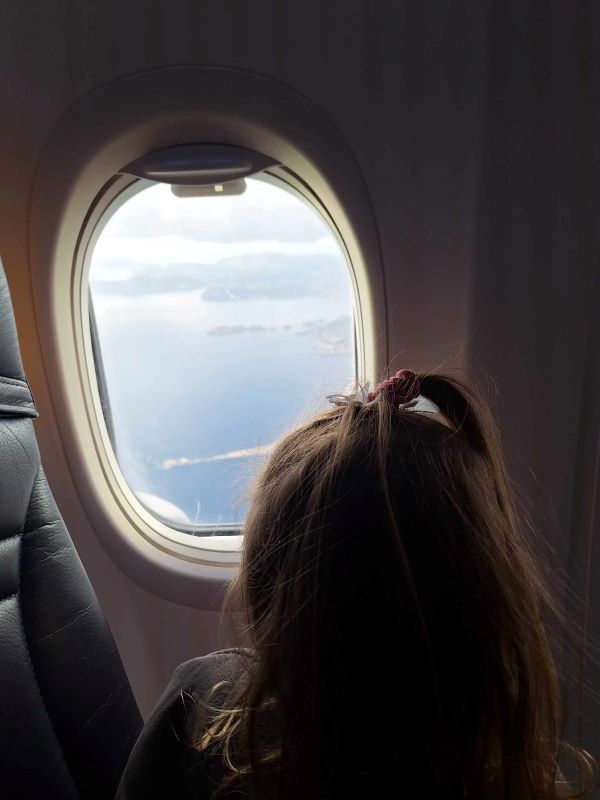
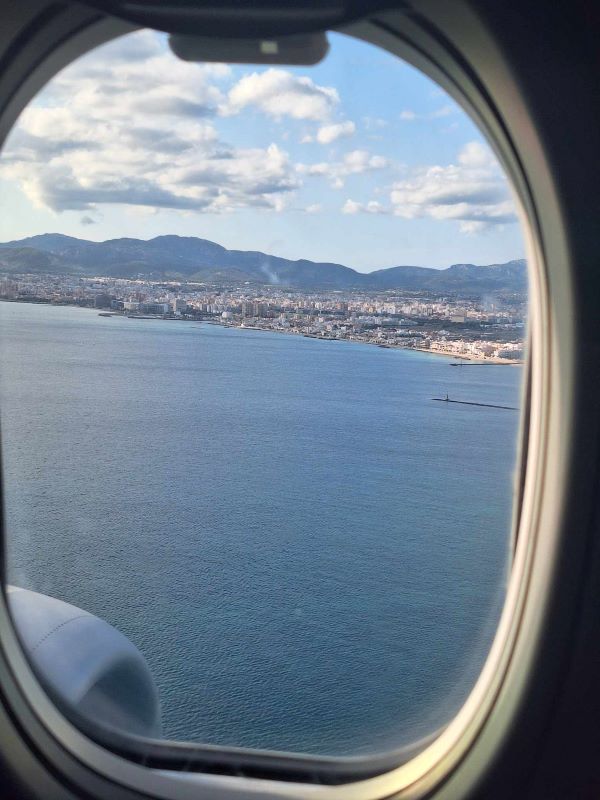
When dealing with a flight delay or cancellation, contacting the airline directly can often provide you with faster and more detailed information. While apps and websites offer useful updates on your flight status, speaking to a representative, either over the phone or at the customer service desk, can give you access to more personalized options, like rebooking or even special assistance if you have urgent travel needs.
If you’re at the airport, head to the airline’s customer service desk or a self-service kiosk. If lines are long, try calling the airline’s support hotline or use their mobile app to chat with a representative. Many airlines also provide real-time customer service via social media platforms like Twitter or Facebook. FYI, this is how I was able to get out of Santorini so don’t dismiss the power of social media!
Engaging with the airline through multiple channels can increase your chances of getting a quick resolution.
Be sure to have your booking reference or ticket number handy, and inquire about the next available flights. If you’re concerned about missing a connecting flight, mention it to the agent, as they may prioritize your rebooking to help you avoid further disruptions.
10. You may need to consider alternative travel options
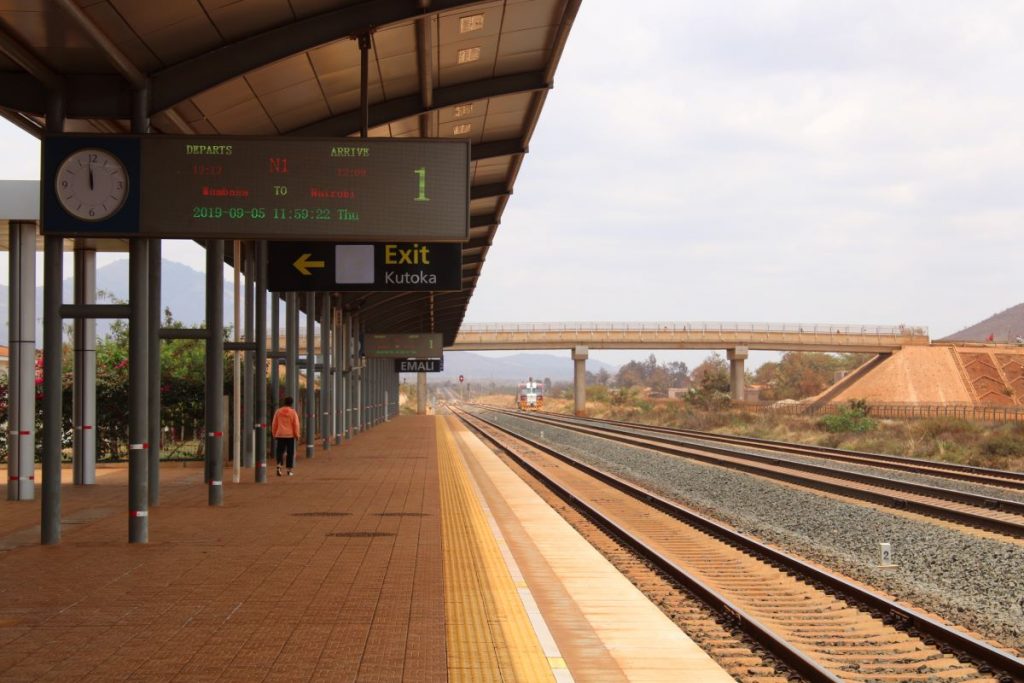
In the event of a long flight delay or cancellation, alternative travel options may get you to your destination faster. Depending on the distance and urgency of your trip, switching to another form of transportation. Like a train, bus, or rental car, could be a viable option.
Check whether nearby airports offer flights to your destination that might be less affected by delays. If your current airline is unable to rebook you, consider booking a ticket with a different carrier. Some credit card companies or travel insurance policies may cover the cost of rebooking on a new airline if your original flight is significantly delayed or canceled.
Rental cars or ridesharing services are also good options for shorter trips, particularly if bad weather or air traffic control restrictions have grounded flights. But the roads are still safe for travel. In the case of longer delays, you might want to explore ground transportation alternatives, especially if you’re traveling within the same country or region.
If you’re exploring these options, remember to keep all receipts and check whether your travel insurance or credit card offers reimbursement for these additional costs.
11. Take advantage of airport lounge access
If you have a long flight delay or cancellation, airport lounges can provide much-needed comfort and convenience. These lounges typically offer a quieter, more relaxing environment compared to the main terminal. Amenities such as complimentary food, drinks, Wi-Fi, and comfortable seating can make the wait more bearable, especially during extended delays. Some lounges even offer showers and nap pods, helping you recharge before your flight.
You may have access to an airport lounge through a credit card benefit, frequent flyer status, or by purchasing a day pass. Many premium travel credit cards, such as the American Express Platinum or Chase Sapphire Reserve, grant complimentary lounge access through programs like Priority Pass. Even if your credit card doesn’t offer free access, buying a day pass can be a worthwhile investment if your delay stretches for hours.
If you’re dealing with a canceled flight that results in an overnight stay, having lounge access can make all the difference between a stressful night and a more comfortable one. Be sure to check whether your airline offers lounge passes as compensation for significant delays, or if your frequent flyer status entitles you to any extra benefits during disruptions.
12. Claim compensation where applicable
When faced with a flight delay or canceled flight, you may be entitled to compensation depending on the cause and length of the disruption. In the European Union, for example, passengers are protected under EU Regulation 261/2004, which mandates compensation for delays of three hours or more, or for canceled flights, except in cases of extraordinary circumstances like severe weather or security issues.
The compensation you’re eligible for can range from €250 to €600, depending on the length of the delay and the distance of the flight. It’s important to file a claim promptly, and many airlines have specific forms or procedures in place for this purpose. Be sure to keep all documentation of the delay or cancellation/ That includes your boarding pass, flight status updates, and any communications with the airline. If the airline doesn’t provide compensation voluntarily, you can use third-party services to help with the claims process.
In the U.S., compensation is typically offered if you’re involuntarily bumped from an overbooked flight. However, compensation for delays is less regulated, and assistance is often at the discretion of the airline. Still, it’s always worth inquiring, especially if the delay was caused by factors within the airline’s control.
13. Stay calm and be proactive
If your flight is delayed or canceled, staying calm is key. It’s easy to get frustrated or overwhelmed. But maintaining a level-headed approach will help you manage the situation more effectively. The most important thing you can do in these circumstances is to be proactive.
Start by gathering all the information you can. Use the airline’s app or website to stay updated on your flight status and any potential rebooking options. If you’re at the airport, head to the airline’s customer service desk to discuss alternative travel arrangements. Being polite and patient with airline staff can often get you quicker solutions, especially when many other passengers are dealing with the same issue.
Having a backup plan is also critical. Research alternative flights, and if possible, check availability with other airlines or even different airports nearby. Keeping an eye on flight tracking apps or booking apps like Skyscanner or Google Flights can help you spot alternatives quickly.
Remember to stay organized. Keep all your receipts and documentation for any expenses incurred during the delay, and make sure to inquire about compensation. Knowing your options and staying proactive will make managing delays or cancellations much less stressful.
My final thoughts on if your flight’s delayed or canceled

Flight disruptions are frustrating, but they don’t have to ruin your trip. The key is preparation and knowing your options. Whether it’s checking official announcements, understanding your rights, or exploring alternative travel options, you can take control of the situation. Keep your receipts, stay informed about what protections you have, and always be proactive.
Delays and cancellations may be inevitable. But with the right approach, you’ll stay one step ahead and minimize the hassle. Being prepared will turn a frustrating experience into a manageable one. And get you back on track faster.
FAQ
Should I still go to the airport if my flight is delayed?
Yes, you should still plan to go to the airport unless the airline specifically advises otherwise. Delays can sometimes change quickly, and flights may depart earlier than expected once the issue is resolved. Always monitor your flight status via the airline’s app or website, and give yourself enough time to check in and clear security. If your delay is significant, contact the airline to verify whether there are any further updates or if rebooking options are available.
Do I need to check-in at the original time if my flight is delayed?
Yes, in most cases, you should still check in at the originally scheduled time. Especially if the delay is relatively short. Many airlines require passengers to check in on time regardless of a delay to avoid losing their seats. If you’re unsure, check with your airline for specific instructions. For longer delays, some airlines may allow flexible check-in. But it’s better to be safe and check in at your original time unless informed otherwise.
How long can a flight be delayed before it’s officially canceled?
There’s no fixed rule for how long a flight can be delayed before it’s officially canceled. Airlines often try to delay flights rather than cancel them, especially if the issue is something that might be resolved quickly. Things like air traffic control restrictions or temporary technical issues. However, if delays extend for several hours, cancellations become more likely. It’s best to stay updated via the airline’s app and be prepared to explore rebooking options if a canceled flight becomes inevitable.
Is it possible for a delayed flight to leave earlier than expected?
Yes, it’s possible, though rare. If the issue causing the delay is resolved faster than expected, airlines may move to depart earlier to get back on schedule. This is why it’s important to stay close to the gate and keep a constant eye on your flight status through the airline’s app or departure boards at the airport. Always ensure you’re near your gate and ready to board, even during a delay, just in case the situation changes.
Thanks for Reading!
Have you experienced a flight cancellation or flight delay before? I’d love to read your experience in the comment section below!
PIN IT TO PINTEREST!

Last Updated on October 23, 2024 by snaphappytravel

